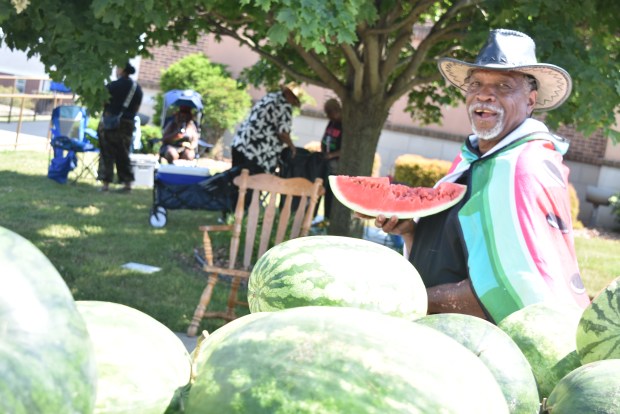Elgin Fire Department’s request to buy a sixth ambulance and hire nine additional firefighters to staff it is one of several proposals included in the city of Elgin’s tentative 2025 budget, presented Wednesday night to the Elgin City Council.
The additional ambulance would reduce response times and requests for mutual aid, City Manager Rick Kozal told council members in advance of formal budget discussions that are to start next week.
The $391.3 million budget shows a 4.5% increase in revenues and a 1.3% decrease in expenditures over the 2024 spending plan.
Elgin’s general fund tax levy will remain flat for the 11th consecutive year but the combined property tax levy is increasing 2.9% because of higher required pension payments, Kozal said.
Holding costs down doesn’t mean capital investments in city facilties and infrastructure will be stagnant, he said.
Among the capital investments proposed for next year are a new clubhouse, with putting green and bar, for Wing Park Golf Course and the start of work on the Kimball Street and Chicago Street bridge replacements.
There are also plans to build a new Wing Park playground and make improvements to its walking paths, seating, parking and bandshell area, Kozal said.
The Kimball and Chicago street bridge projects will cost a total of $40 million, but the city is using federal and state funding to cover 80% of that pricetag. Construction starts in 2026 on the Kimball Street Bridge followed by the Chicago Street Bridge in 2028. The 2025 budget and 2025-27 financial plan will include money for design and engineering work for both, Kozal said.
Elgin will continue to replace lead service lines in 2025. Its goal is to remove 1,000 a year. Since 2018, 2,000 of the 13,500 identified lead service lines have been replaced.
The city leads “the state with its lead water service line replacement program using funding primarily derived from state and federal sources,” said Kozal, who noted that funding will not be available next year.
Another big-ticket item is that combined sewer separation project, which still needs $40 million to $50 million to complete. Elgin has spent $96 million on it over the last 30 years.
Other infrastructure and capital improvement projects call for adding deep wells, making potential changes to the Leo Nelson Riverside Water Treatment Plant water intake system and introducing new water treatments to remove chemicals.
The city is increasing water and sewer rates to pay for those projects. Water rates are to increase by 9.5% and sewer rates by 4% in 2025, Kozal said. In the four years following that, water rates will go up 9.75% and sewer rates 4% annually.
“Despite these increases, the city’s water and sewer rates remain competitive with similar communities in the Chicago metropolitan area,” Kozal said.
Economic development is ongoing, but the downtown Tax Increment Financing district, which will have a $5.3 million balance by the end of next year, is set to expire in December 2025. During its existence, the city has used it as an economic incentive tool for several projects, including the Elgin Tower building and 40 DuPage Court.
The Illinois General Assembly must approve an extension of the district if it is to continue. Local state legislators have expressed support for extending it another 12 years, which the city will work on next year, Kozal said.
City staff will provide more details on the budget during workshops scheduled for this month and next. The spending plan is to be approved in late December and goes into effect Jan. 1.
Gloria Casas is a freelance reporter for The Courier-News.





